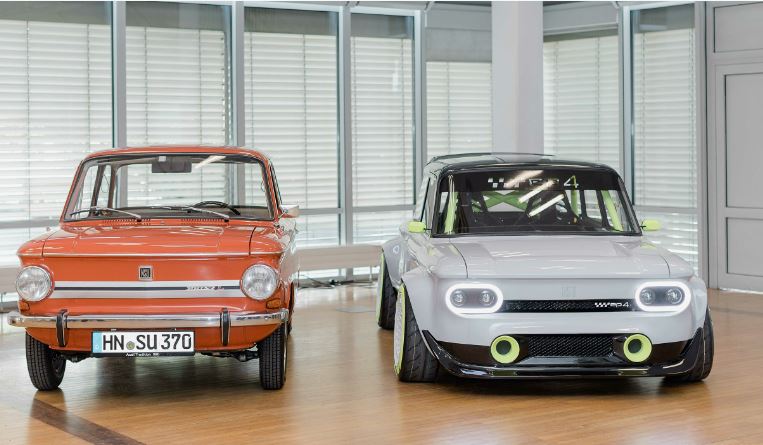The history of the automobile is a fascinating journey that illustrates humanity’s relentless drive for progress. From the earliest prototypes to today’s high-tech vehicles, automobiles have not only changed how we travel but also how we think about mobility, convenience, and environmental responsibility. This article explores the various stages of automobile evolution, highlighting significant milestones and innovations that have paved the way for modern cars, while considering the impact of sustainable practices like Car Recycling Brisbane.
Early Beginnings: The Invention of the Automobile
The concept of self-propelled vehicles dates back to the 15th century when Leonardo da Vinci sketched designs for a primitive, self-moving cart. However, it wasn’t until the late 19th century that practical automobiles began to take shape. In 1885, Karl Benz developed the Benz Patent-Motorwagen, widely recognized as the first true automobile. Benz’s design combined an internal combustion engine with a sturdy frame, offering a practical alternative to horse-drawn carriages.
As early automobiles gained popularity, they became symbols of luxury and status. The first vehicles were manually built, highly expensive, and accessible only to the elite. These early developments laid the foundation for mass production, sparking the initial wave of interest in car ownership—a trend that Car Recycling in Brisbane now supports through eco-friendly recycling processes for older car models.
The Era of Mass Production: Ford and the Model T
The mass production of automobiles was pioneered by Henry Ford, who introduced assembly line techniques with the Model T in 1908. Ford’s innovations made car ownership affordable, transforming the automobile from a luxury item into a product for the masses. By standardizing parts and streamlining production, Ford managed to reduce costs significantly, making cars accessible to everyday Americans. This revolution in production methods not only influenced the automobile industry but also set standards across various manufacturing sectors.
As car production increased, so did the need for responsible disposal and recycling. The introduction of services like Car Recycling Brisbane reflects how society has developed systems to handle the environmental impact of obsolete vehicles, ensuring that even today’s mass-produced vehicles can be recycled efficiently.
Post-War Advancements: Speed, Style, and Power
Following World War II, the automobile industry experienced an unprecedented boom. Car manufacturers focused on producing powerful, stylish vehicles that reflected the prosperity and optimism of the post-war era. The 1950s and 1960s were marked by innovation in design, with tailfins, chrome detailing, and V8 engines becoming popular. Automakers competed to create high-performance vehicles that catered to consumers’ desire for speed and luxury.
This era of automotive indulgence, however, came at a cost—fuel consumption and emissions increased drastically. By the 1970s, environmental awareness began to grow, and the need for sustainable practices became evident. Car Recycling Brisbane and similar initiatives started to emerge as people recognized the necessity of responsibly managing the environmental footprint left by retired vehicles.
The Rise of Japanese Automobiles and Efficiency
In the 1970s, Japanese carmakers such as Toyota, Honda, and Nissan introduced vehicles that prioritized fuel efficiency and affordability. During the oil crisis, these compact and economical cars gained popularity in the West, challenging American and European brands. Japanese manufacturers emphasized high-quality engineering and reliability, attracting customers seeking long-lasting and efficient vehicles.
The success of Japanese automobiles shifted the focus toward fuel efficiency and environmental responsibility. Today, services like Car Recycling Brisbane help ensure that even fuel-efficient vehicles are disposed of properly when they reach the end of their lifespan. This recycling not only reduces waste but also allows materials to be reused in newer models, reducing the need for raw materials.
The Birth of Environmental Awareness and Electric Vehicles
As environmental concerns grew in the late 20th century, car manufacturers began to explore alternative fuel sources and emission reduction strategies. The idea of electric vehicles (EVs) started gaining traction, though the technology was still in its infancy. The Toyota Prius, launched in 1997, marked a major milestone as the first mass-produced hybrid vehicle. It combined an electric motor with a gasoline engine, paving the way for today’s EV market.
The development of EVs underscored the need for eco-conscious vehicle design, as well as responsible recycling of traditional vehicles. Services like Car Recycling Brisbane play a crucial role in this shift, as they provide an avenue for environmentally friendly disposal of outdated or damaged vehicles, ensuring that components are either reused or disposed of responsibly.
Digital Revolution and Smart Cars
In recent decades, automobiles have transformed into digitally connected machines. Today’s cars come equipped with advanced technologies such as GPS, entertainment systems, autonomous driving capabilities, and even voice recognition. The integration of artificial intelligence (AI) and machine learning in vehicles has enabled features like adaptive cruise control, lane-keeping assist, and self-parking. As cars evolve into smart devices, the focus has shifted to connectivity and user experience.
With these advances comes an increased awareness of sustainability. Innovations in car technology emphasize reducing the vehicle’s environmental footprint, and Car Recycling Brisbane helps manage the end-of-life phase for vehicles, preventing older models from contributing to waste and pollution.
Autonomous Vehicles: The Future of Transportation
Autonomous, or self-driving, vehicles represent one of the most ambitious developments in automotive history. Tech giants like Google and traditional automakers like Tesla are at the forefront of this innovation, aiming to create cars that can drive themselves with minimal human input. Autonomous vehicles promise increased safety, reduced traffic congestion, and greater accessibility for those who cannot drive.
However, with more complex technology comes a more complicated recycling process. Cash for scrap cars removal Gympie has adapted to address the disposal needs of modern vehicles by refining processes to safely recycle advanced batteries, sensors, and electronics, helping to reduce the environmental impact of these innovative cars when they are no longer functional.
Electric Revolution: The Era of Sustainable Driving
The recent push toward electric vehicles has gained significant momentum, with countries around the world committing to phase out gasoline-powered cars. Tesla, Nissan, and other car manufacturers have popularized electric vehicles that deliver high performance without compromising on environmental responsibility. The electric revolution marks a shift toward sustainable energy use, with electric cars designed to operate with minimal emissions.
Car Recycling Brisbane is an essential part of this electric shift, as they provide services for recycling batteries and other EV components. As electric vehicles become more common, the need for responsible recycling of lithium-ion batteries and other eco-sensitive materials grows, reinforcing the role of recycling in sustainable automotive practices.
Conclusion: The Role of Recycling in the Future of Automobiles
From the first self-propelled carts to today’s high-tech electric vehicles, the history of the automobile reflects our desire to innovate, improve, and evolve. Every era of automobile development has introduced new technologies and designs that have transformed transportation and society. However, as cars have become more advanced, so has the need for sustainable practices.
Car Recycling Brisbane embodies this commitment to sustainability by providing a solution for disposing of and repurposing old vehicles. Recycling minimizes waste, reduces the need for new materials, and promotes environmental responsibility, ensuring that the car industry can continue to innovate without compromising the planet’s resources. As we look to the future, the collaboration between technological advancement and sustainable practices like car recycling will play a critical role in shaping the evolution of the automobile industry.






